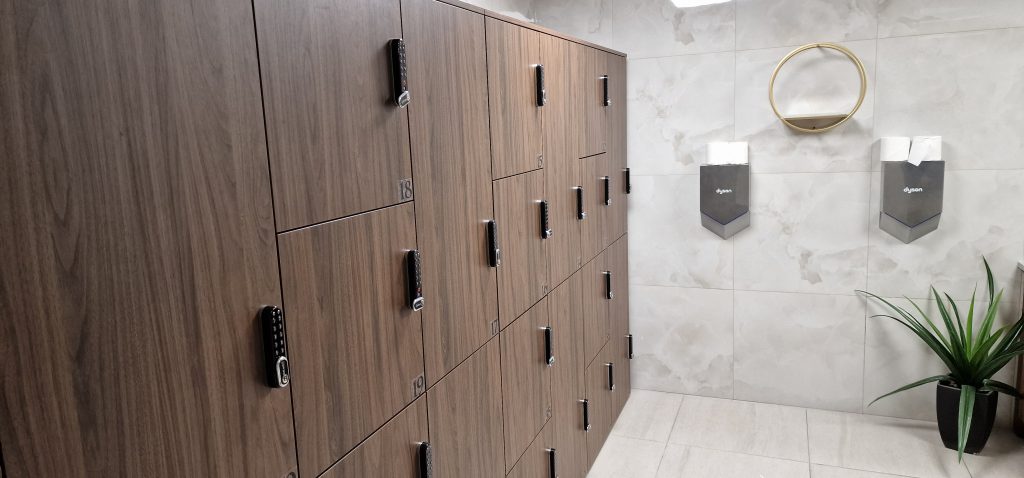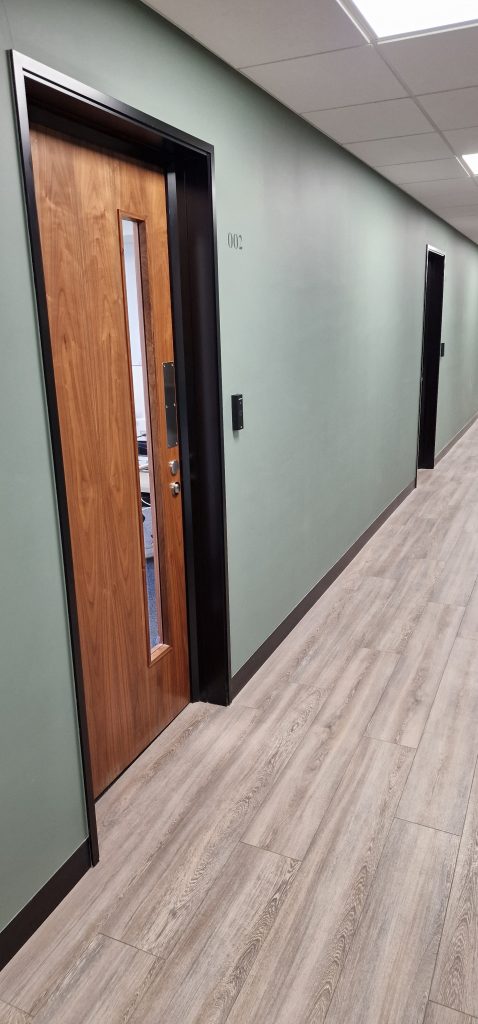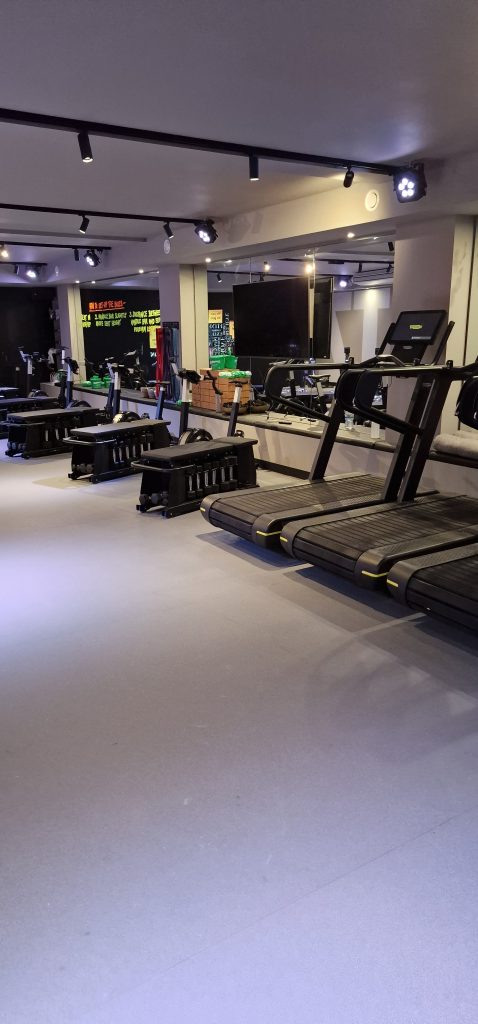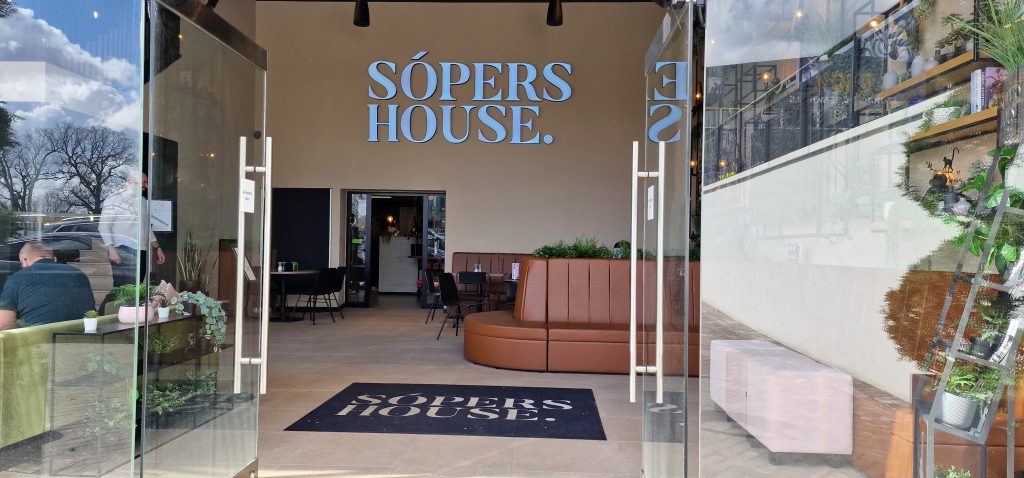Office workers have been returning to their offices in droves, which has put increased attention on workplace wellbeing. Joanne Milne-Rowe, Sales Director at Codelocks, discusses the ways smart lock technology can play a role in supporting different wellbeing initiatives.
A few years ago, all we saw in the news was the ‘great resignation’. Now we have another ‘great’ to deal with. According to Virgin Media O2’s yearly Movers Index, 2023 was the start of the ‘great return’ as office workers returned to their normal offices after working from home. The data shows that now over 40% of employees have returned to a five-day in-office work week.
Just as we heard a lot about the great resignation and employees’ wellbeing, the great return is prompting similar talking points as people are once again confronted with the downsides of office life. The knock-on effect of these downsides has been a demand for better initiatives and policies to support employees’ wellbeing. If they have to return, many employees feel they need to be supported.
The forms of support vary from hybrid working to gym memberships or hot desking between office locations. Common to them all is the need for effortless access control and flexibility as people find their way back to shared spaces and open-plan offices. In many instances, the responsibility of making things run smoothly falls on facilities managers, office managers, and installers. To ensure success, smart locking solutions are a necessity. And as we’ll see, many organisations have used them with notable results.
Meeting in the middle – compromise and access control
The return to the office has not been welcomed by all. There are clear dividing lines between employees and leaders. Gartner research shows that 48% of office employees believe that return to office (RTO) policies prioritise what leaders want over what employees need. The only solutions that avoid things like quiet quitting and plummeting wellbeing are ones where employees and leaders meet in the middle. Hybrid working, where employees spend several days in the office and several days at home, is the perfect agreement. It boosts employee productivity while also allowing in-person collaboration.
To facilitate hybrid work policies and preserve employee wellbeing, offices need access control solutions suited to the task. They must be flexible, integrate smart technologies, and be easy to use.
Faced with this challenge, one UK County Council decided to create ‘hot lockers’ for their hybrid employees that could be shared by different people on different days at varying times. They used Kinnarps lockers combined with the Codelocks KitLock KL1100 RFID lock. The locks allowed facilities managers to give all employees unique, card-based access to each locker, saving time and money needed to cut thousands of unique locks for individual lockers. Thanks to the RFID technology and central control system, the facilities managers are also capable of overseeing employee access for all lockers simultaneously and remotely.
As for employees, the process of using the ‘hot lockers’ is frictionless. They simply use their card to access and lock the locker when they need to store their belongings. When they’re not in the office, the locker is available for other employees to use.
The added benefit of a system that uses the KL1100 RFID is that it can be implemented across several office sites, giving employees the freedom to choose which office they want to work from. The Council’s employees are free to move between locations, which can shorten their commute or allow them to collaborate with different colleagues in person. Organisations can use a similar system to support regional or national team days that boost collaboration and company culture. Employees across a company can meet in one centralised location with secure storage for their belongings without facilities or office managers having to coordinate new card access for them.
Wellbeing benefits beyond the office
Employee wellbeing goes beyond the four glass walls of the shared office, which is why we are seeing many organisations offering gym facilities for their staff. An active lifestyle has many health and work benefits that can’t be overestimated. According to the NHS, a short interval of exercise will fight off tiredness at work late into the afternoon. While regular exercisers are 129% more likely to report feeling more productive at work. On top of this, exercise improves employees’ attitudes towards work itself. Seventy-three per cent of employees who exercise in the morning say they are more satisfied at work. Having exercise facilities at work, therefore, improves employee performance and makes the office a more desirable location to work, which is why Sópers House wanted to renovate its offices to give employees and visitors gym access.
As a co-working space, Sópers House needed a solution that, like the County Council, allowed keyless temporary access to all shared lockers. It was crucial to the success of the project that coin-, key- or padlock-operated locks commonly found in gyms were not used. The solution was the KL1000 G3 from Codelocks, a stylish digital keypad-based lock with key override functionality.
For office workers, keyless access is a massive bonus. Many high-street gyms require people to bring their own padlocks. When you forget it, they make you buy one at an inflated price. As well as being an unnecessary expense, this is also frustrating. For a workplace gym, this would not help with morale. The KL1000 G3 keyless entry eliminates the need for padlocks and coins, the money they might cost, and the frustration that can come from them.
Due to the keyless access, the facilities managers have saved a significant amount of time not having to manage the locks too. The locks largely take care of themselves, and the additional capacity has given them time to focus on other high-priority tasks. The same goes for gym staff, who, rather than dealing with locks, can focus on supporting gym users. And, if something does go wrong, such as an employee leaving their belongings behind or forgetting their temporary access code, the key override function means the problem can be swiftly resolved.
From hassle-free access to effortless key override, both Sópers House and the County Council remind us that when it comes to employee wellbeing, the less friction, and more flexibility, the better. As things are made easier to use, and employees are given choice in how they use them, employee morale and productivity is likely to increase. Locks like Codelocks’ KL1000 G3 and the KL1100 RFID are supporting wellbeing initiatives in many organisations – visit codelocks.co.uk to learn what they can do for yours.




